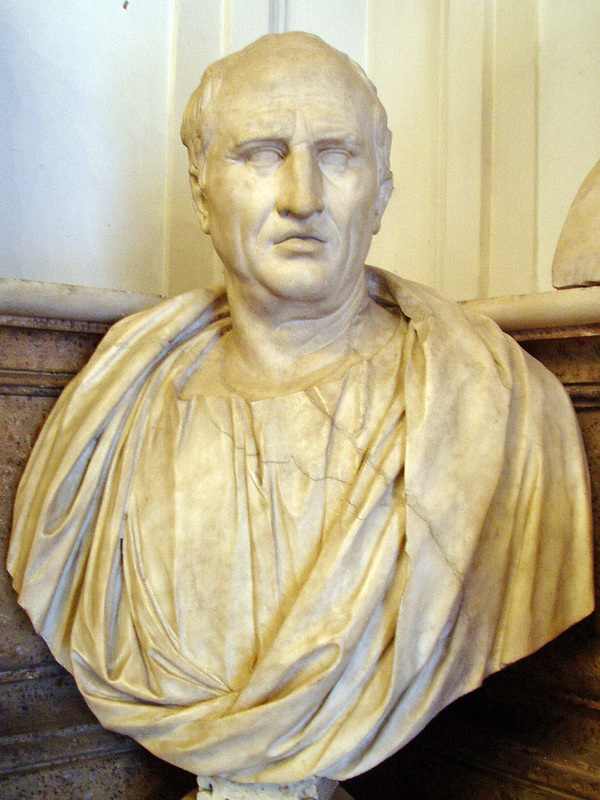Human Failings in Literature
Paul Claudel is not much remembered today, at least in the English-speaking world. That he is at all is largely due to three famously excised stanzas from a poem by W.H. Auden, his obituary for William Butler Yeats:
Time that is intolerant
Of the brave and innocent,
And indifferent in a week
To a beautiful physique,
Worships language and forgives
Everyone by whom it lives;
Pardons cowardice, conceit,
Lays its honours at their feet.
Time that with this strange excuse
Pardoned Kipling and his views,
And will pardon Paul Claudel,
Pardons him for writing well.
Two days ago I quoted a letter of Yeats in which a literary figure of the day was shown in a state of inebriation (or rather, hangover), and referred to it as "delightful," not because I support drunkenness, but because it seemed humanizing. I felt sympathy.
An online discussion of friends recently touched upon the same topic. Famous poets were quoted. Baudelaire: "It is time to be drunk! So as not to be the martyred slaves of time, be drunk, be continually drunk! On wine, on poetry or on virtue as you wish." And Byron: "Man, being reasonable, must get drunk; the best of life is but intoxication." Stories abound, say, of the infamous drunkenness of Dylan Thomas on his reading circuit in America, even of his death after having imbibed "18 straight whiskies." Recent investigation has shown the cause of death more probably to have been medical malpractice than drinking too much—not to suggest that drinking has not resulted in many a needless death.
The myth persists—both about Thomas's death, and that alcohol somehow serves as a spur to creativity. In all likelihood it does not.
Today, various "sins" which at one time were described as originating in "moral failings"—alcoholism, homosexuality—are now seen to be biologically or genetically determined. (The Old Testament, of course, propounds an anti-scientific view: was not Noah's son punished for having seen his nakedness when he was drunk?) In either case, a predisposition may be inherited.
Bound not by the Old but the New Testament—or not even that—Christians are enjoined to be tolerant and forgiving. In practice, this becomes not always so easy to enforce; as Chesterton noted, a great argument against Christianity is the behavior (and words) of Christians themselves. Yet tolerance does not imply permissiveness: DUI recidivism demands penalty for the protection of society.
What time pardons, or fails to pardon, lies beyond human comprehension; yet it is fairly certain where human sympathies lie. Two poems by the poet Robert Service would suggest that "sinfulness is next to godliness". The religious context would be: one cannot be saved without having sinned; that lamb is beheld most dear which previously was lost. Robert Service, immensely popular in his day, has been a perennial favorite among that part of the population which does not count itself among the literati; which suggests that his empathy reflects the norm, not an irregularity. (I have noted his influence on my verse here.)
These are his poems:
Gods in the Gutter
I dreamed I saw three demi-gods who in a cafe sat,
And one was small and crapulous, and one was large and fat;
And one was eaten up with vice and verminous at that.
The first he spoke of secret sins, and gems and perfumes rare;
And velvet cats and courtesans voluptuously fair:
"Who is the Sybarite?" I asked. They answered: "Baudelaire."
The second talked in tapestries, by fantasy beguiled;
As frail as bubbles, hard as gems, his pageantries he piled;
"This Lord of Language, who is he?" They whispered "Oscar Wilde."
The third was staring at his glass from out abysmal pain;
With tears his eyes were bitten in beneath his bulbous brain.
"Who is the sodden wretch?" I said. They told me: "Paul Verlaine."
Oh, Wilde, Verlaine and Baudelaire, their lips were wet with wine;
Oh poseur, pimp and libertine! Oh cynic, sot and swine!
Oh votaries of velvet vice! . . . Oh gods of light divine!
Oh Baudelaire, Verlaine and Wilde, they knew the sinks of shame;
Their sun-aspiring wings they scorched at passion's altar flame;
Yet lo! enthroned, enskied they stand, Immortal Sons of Fame.
I dreamed I saw three demi-gods who walked with feet of clay,
With cruel crosses on their backs, along a miry way;
Who climbed and climbed the bitter steep to which men turn and pray.
God's Skallywags
The God of Scribes looked down and saw
The bitter band of seven,
Who had outraged his holy law
And lost their hope of Heaven:
Came Villon, petty thief and pimp,
And obscene Baudelaire,
And Byron with his letcher limp,
And Poe with starry stare.
And Wilde who lived his hell on earth,
And Burns, the baudy bard,
And Francis Thompson, from his birth
Malevolently starred. . . .
As like a line of livid ghosts
They stared to Paradise,
The galaxy of Heaven's hosts
Looked down in soft surmise.
Said God: "You bastards of my love,
You are my chosen sons;
Come, I will set you high above
These merely holy ones.
Your sins you've paid in gall and grief,
So to these radiant skies,
Seducer, drunkard, dopester, thief,
Immortally arise.
I am your Father, fond and just,
And all your folly see;
Your beastiality and lust
I also know in me.
You did the task I gave to you . . .
Arise and sit beside
My Son, the best belovèd, who
Was also crucified.


 RSS Feed
RSS Feed